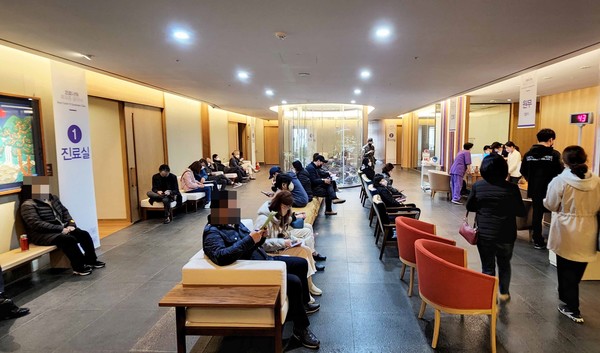A lawmaker on Friday called for preparing a Korean version of a treatment guideline for people suffering from Covid-19’s aftereffects, saying their number exceeded 54,000 in the past two years.
Rep. Suh Young-seok of the main opposition Democratic Party of Korea (DPK) said so based on his analysis of data at the Health Insurance Review and Assessment Service.
According to Suh, the number of patients who received treatment due to the aftereffects of Covid-19 for 22 months, from October 2020 (when a new disease code for the aftereffects of Covid-19 was established) to July 2022 totaled 54,463.
The total breaks down into 97 from October to December 2020, 2,918 from January to December 2021, and 51,148 from January to July 2022.

The number of Covid-19 infections skyrocketed from 570,000 in 2021 to 19.14 million in the first seven months of 2022, recording a 34-times jump. Accordingly, the number of long-Covid patients also soared by 18 times, Rep. Suh said.
Major symptoms of long-Covid patients were broad and diverse, including fatigue, memory impairment, lowered concentration, breathing difficulty, phlegm, headache, foreign substances in the throat, insomnia, and post-traumatic stress disorder.
Also, according to a study of confirmed patients in Daegu between February and March 2020, 83 percent of the subjects said they were suffering from aftereffects even 24 months after being confirmed.
By age group, long-Covid patients in their 60s totaled 12,284, accounting for 22.6 percent of the total, followed by 40s, with 8,055 (14.8 percent), and 50s, with 8,038 (14.8 percent).
“In the case of MERS in 2015, more than half of survivors showed a high level of psychiatric problems after recovery in a study conducted a year later, indicating the nation should prepare thorough measures for Covid-19’s aftereffects,” Rep. Suh said.
A study is underway to prepare a guideline to treat the aftereffects of Covid-19, but it is scheduled to be completed no earlier than December 2025, Suh pointed out.
“Therefore, the health authorities should quickly make Korean-style treatment guidelines by conducting reliable short-term studies in parallel to prevent treatment vacuum,” the lawmaker emphasized.

